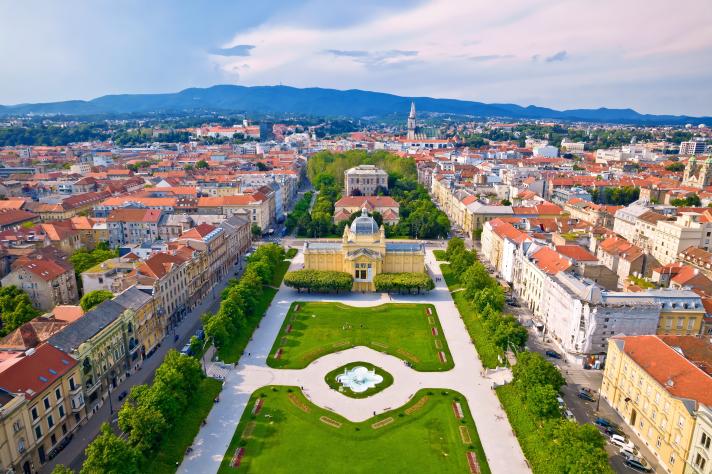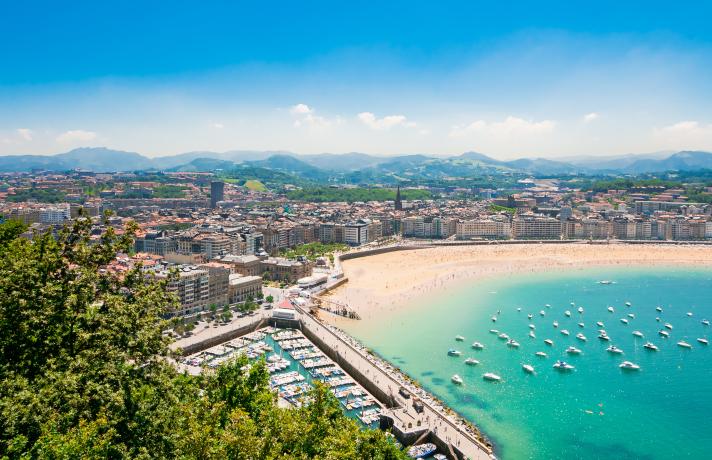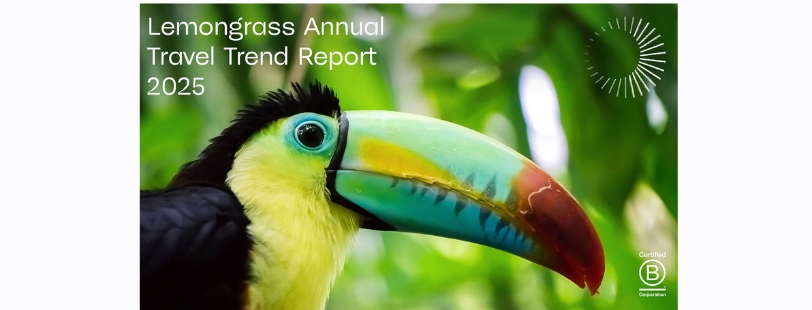
Seven shortlisted cities for the 2023 European Capital of Smart Tourism title
The European Capital of Smart Tourism initiative recognises outstanding achievements by European cities as tourism destinations in four categories: sustainability, accessibility, digitalisation as well as cultural heritage and creativity. This EU initiative aims to promote smart tourism in the EU, network and strengthen destinations, and facilitate the exchange of best practices. smart tourism destinations
The cities shortlisted for the European Capital of Smart Tourism 2023 award were announced by the European Commission. Presented in alphabetical order, Aarhus (Denmark), Gijón (Spain), Pafos (Cyprus), Porto (Portugal), San Sebastián (Spain), Seville (Spain), Zagreb (Croatia) are the finalists selected from 29 candidates from 13 countries.
The competition was open to cities across the EU and the non-EU countries that take part in the COSME programme. The applications were evaluated by a rigorous panel of independent experts. Applicants with the highest overall score across all categories made the cut.
Zagreb Capital of the Republic of Croatia, Zagreb is a vibrant and exciting smart tourism destination with a modern and creative outlook on tourism
Seville Seville is the capital of Andalusia and the 4th largest metropolis in Spain. A city rich in history and tradition, Seville is home to 3 UNESCO World Heritage Sites
Porto 900 years of age, Porto, offers a rich heritage, combining tradition and modernity, and is a place of multiculturalism.
Pafos The capital of Cyprus in Roman times, Pafos is an all-year-round destination and one of the most diverse and historically rich areas on the island.
Aarhus Born from the rich pioneering spirit of the Vikings, Aarhus has emerged as a leader in Danish innovation and modern outlook on all things smart.
Gijon Gijón is located in the north of Spain in the Principality of Asturias, in the centre of the Asturian coast.
San Sebastian San Sebastián has been a destination the 19th century, when royalty, aristocracy, and the bourgeoisie began to summer in the city, setting a trend.
As a next step, the shortlisted cities will be invited to present their candidatures in front of a European Jury, who will select the 2023 European Capitals of Smart Tourism. Coming with the title of 2023 European Capital of Smart Tourism, communication and branding support throughout 2023 will be provided to the winners. This includes a promotional video, a specially designed hashtag sculpture for the city to display, and tailored promotional actions designed to increase visibility at EU and global level and increase the number of visitors.
Since 2018, the competition has provided a platform to showcase outstanding practices and success stories. The victors from previous editions Helsinki and Lyon (2019), Málaga and Gothenburg (2020), València and Bordeaux (2022) are role models for smart tourism in Europe and top international rankings of sustainability, innovation, livability, and integration of smart practices.
About the initiative smart tourism destinations
The European Capital of Smart Tourism is an EU initiative, currently financed under the COSME Programme, that aims to promote smart tourism in the EU by rewarding cities for their pioneering smart tourism approaches in accessibility, digitalisation, sustainability, and cultural heritage and creativity. Built on the successful experience of a preparatory action proposed by the European Parliament, the initiative seeks to foster innovative, sustainable, and inclusive tourism development, as well as spread and facilitate the exchange of best practices.
Smart tourism practices in Europe implemented by the applicants of the 2022 competition can be found in the ‘Leading Examples of Smart Tourism Practices in Europe‘ report. Likewise, delegates from the European Capitals of Smart Tourism competition winners, shortlisted cities, and EU Commission’s representatives discuss in the EU Smart Tourism Podcast series the role of the European Capital of Smart Tourism competition in driving the smart tourism innovation and examine smart tourism practices that are shaping the future in Europe.
















